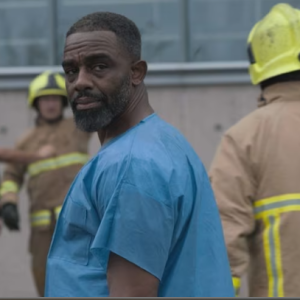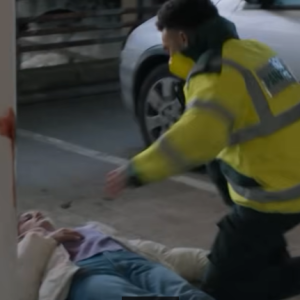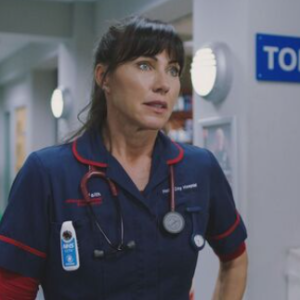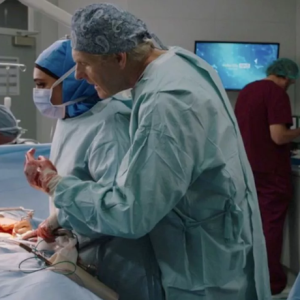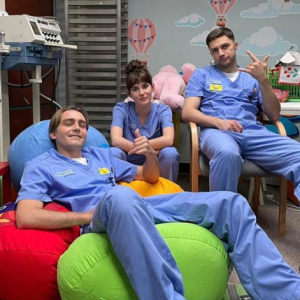Huge changes are coming up for Casualty, as BBC bosses plot a dramatic shake-up ahead of the show’s landmark 40th anniversary. The long-running medical drama, which has been a Saturday-night fixture since its launch in 1986, has become synonymous with the emotional rollercoaster of Holby’s emergency department, where personal stories collide with life-and-death crises every week. But now, almost four decades into its run, Casualty finds itself at a pivotal crossroads both on screen and behind the scenes. In an unprecedented move, the BBC has announced that it will open up the programme to outside competition, allowing independent production companies to pitch for the chance to take over the show from BBC Studios, which has produced it since the beginning. It is a bold and risky decision, one that speaks to the shifting landscape of British television, and one that could change the DNA of Casualty in ways that fans may not yet fully grasp. The stakes are nothing less than the future of a series that has survived countless cast departures, format changes, and rival dramas, but never before such a fundamental question over who should guide it through the next stage of its life.
The announcement has sparked intense speculation, not just among industry insiders but among millions of devoted viewers who have watched Casualty become a cultural institution. For years, dramas have kept their future plans tightly under wraps, their storylines and strategies shrouded in secrecy, but this competitive tendering process has forced the BBC to lay its cards on the table. In revealing its long-term vision for Casualty, the broadcaster has been clear on one thing: the show’s future is secure. Despite tabloid rumours earlier this year that the axe might fall on Holby’s ED, BBC bosses have publicly reaffirmed their commitment to keeping the drama at the heart of their schedules. David Pembrey, chief operating officer of BBC Content, spoke in no uncertain terms when he said: “The award-winning Casualty is a hugely important continuing drama which has been on our screens since 1986. We are opening it up to competition as part of our ongoing commitment to delivering the very best value for audiences.” For fans, this was a lifeline of reassurance. The tender process is not about whether the show continues, but who will be entrusted to shape it. Contracts already laid out confirm Casualty will remain on air through 2027 to 2029, with the possibility of extending for two further years, ensuring the drama will carry on well into its fifth decade.
That does not mean the road ahead is without peril. BBC Studios, which has shepherded Casualty since its inception, now finds itself in the uncomfortable position of having to fight for its own survival. The production giant will be one of several bidders vying for the commission, needing to prove that it remains the best creative force to carry the show forward. There is precedent here: Holby City, Casualty’s sister series, went through a similar tender process in 2017, and on that occasion BBC Studios emerged triumphant, continuing to produce the hospital drama until its closure in 2022. But lightning does not always strike twice, and in a marketplace hungry for innovation, rival production companies will sense a rare opportunity to step into one of the most high-profile slots on British television. The question now hangs heavily in the air: should Casualty remain with its long-time guardians who know its every heartbeat, or should it be entrusted to a new creative team who may bring fresh blood and bold ideas? The tendering process has transformed Casualty from a Saturday night drama into a prize, a battleground for vision, creativity, and control.
Perhaps the most seismic change of all, however, lies not behind the cameras but within the fictional universe itself. As part of the shake-up, the BBC has confirmed that Holby, the beloved yet fictional city that has been the backdrop for 39 years of storytelling, will soon be left behind. In its place will rise a new fictional hospital based in Wales, a deliberate and permanent shift designed to reflect the BBC’s broader ambitions to authentically represent all corners of Britain. This means that for the first time in its history, Casualty will step away from Wyvern, the fictional county inspired by Bristol, and embrace Wales as its narrative home. It is not a leap into the unknown—since 2011 the series has been filmed at BBC Roath Lock Studios in Cardiff—but this marks the first time the Welsh location will be acknowledged on screen. Tender documents have made it clear: the successful bidder must incorporate authentic Welsh portrayal and reflect the reality of the Welsh NHS. It is a formidable task. For nearly four decades, Holby has been more than a setting; it has been a character in its own right, a place fans have invested in emotionally. To move away from it is to uproot the series’ mythology. Yet in change there is also opportunity: to weave new stories, to bring in new characters, to deepen the tapestry of representation, and to allow the show to mirror the ever-changing face of Britain.
So as the 40th anniversary approaches, Casualty faces a future full of uncertainty, danger, and thrilling possibility. The corridors of Holby ED may soon fall silent, but the heartbeat of the show is set to carry on, pounding with the same urgency that has defined it since 1986. The next two years will be a delicate balancing act as producers—whether BBC Studios or an incoming challenger—prepare to steer the show through its boldest transformation yet. Fans will continue to watch with bated breath as old characters prepare to transition into this new world, as new faces emerge to stake their claim in the drama, and as the series tests its resilience in ways that echo the life-and-death stories it tells each week. Casualty has always been a drama about survival, about clinging to hope in the face of chaos, and now those themes play out off-screen as much as on. As the BBC makes its gamble and the fictional hospital prepares to rise in Wales, one truth remains: no matter where it is set, no matter who makes it, Casualty is not just surviving—it is fighting to thrive, to evolve, and to prove that after nearly forty years, it can still shock, inspire, and break our hearts all over again.
